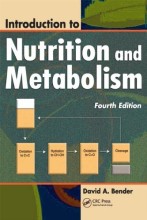Thermoregulation and hydration
14 important questions on Thermoregulation and hydration
What happens to our body in the heat? (so to loose heat):
- Vasodilation
- sweat los
s (very powerful) > nude body is the best
- behavior change (reduce heat gain)
- powerful acclimatization
What happens to our body in the cold (so to stay warm):
- Vasoconstriction (retain heat)
- shivering (increase heat, a little)
- behavior mechanism: exercise (>heat production), clothing allow extending the habitat behind physiological limits (retain heat)
- poor acclimatization
4 ways the body loses heat:
- Radiation : emission of electromagnetic radiation
- Conduction : direct transfer by contact
- Convection : moving air removes radiated heat
- Evaporation : loss of heat by evaporation of water
1, 2, and 3 can also go the other direction.
- Higher grades + faster learning
- Never study anything twice
- 100% sure, 100% understanding
How can you measure the heat balance during exercise?
- Metabolism: indirect calorimetry
- Storage: change in body temp
- Radiation: difference Tskin and ambient
- Convection: air flow (wind)
- Conduction: difference Tskin and ambien (very limited)
- Evaporatnio: body weight change, corrected for fluid loss
Name some techniques to reduce performance decrease in the heat:
- Selection e.g. Afrikan vs europeans
- physiological adaptations - acclimatization
- physical training (cross acclimatization)
- cooling (prior, during and after exercise)
- drinking > cold drinks/ice slurries
- pacing strategy
Dehydration:
What are symptoms?
- Hyperthermia
- increased risk of...
- initiate dehydrated
- multiple training
- diuretics
- decreased endurance performance (particular in the heat)
- cardiovascular and thermoregulation
- less effect on...
- short term high intensity exercise performance
- muscle strength
- power (jumping)
Symptoms: nausea, vomiting, headache, dizziness, muscle cramping
Link dehydration with thermoregulation
- Hyperthermia or heat stress increases dehydration
- hypohydration increases risk:
- heat illness: heat exhaustion heat stroke
- dehydration increases risk of hyperthermia
- increased threshold for sweating and cutaneous vasodilation
- reduces sweat rate due to low circulating volume
- cooling down: per cooling/cool beverages
What are reasons for decreased exercise performance?
- Increase temperature, heat storage (cognitive)
- reduced exercise-induced heat strain
- blood flow, sweat rate
- increase cardiovascular strain, reduced CO
- increase glycogen utilization
- altered metabolic function
- muscle blood flow
Hyperhydration =
Euhydration =
Hypohydration =
Dehydration =
Rehydration =
Euhydration = normal hydration state
Hypohydration = state of underhydration
Dehydration = process of loss of fluid
Rehydration = process of gain of fluid
Fluid balanec during exercise is influenced by:
- Evaporation
- depends on sex
- respiratory loss
- environmental conditions
- heat acclimatization
- altitude
- intensity/duration
- fitness level
- body composition
- medication (diuretics)
Fluid balance/sweat rate = preBW - post BW + fluid - urine
A strategy to reduce hyperhydration - pre exercise is...
- Euhydration - sodium containing fluid
- hyperhydration no thermoregulatory advantage, delays dehydration
- fluid overloading: BUT
- urine production
- stomach/gut problems
- body weight higher
- glycerol hyperhydration:
- osmotic pressure/expands extra-cellular space
- advantage? / hyponatremia complaints
Name the issues in (post-exercise) rehydration process:
- Practical: opporunities, conscious decisions
- voluntary intake: 30-70% of sweat losses
- > people fail to rehydrate
- difficult after high levels of hypohydration (2-5% BM) or interval between exercises short (6-8h)
- GI physiology:
- gastric emptying
- intestinal absorption
When to drink post-exercise?
and
What to drink post-exercise?
- Prevent > 2-3% body water loss
- small advantage of lower BW in some sports
- thirst sensation:
- delayed compared to other physiological indicators of hypohydration
- overdrinking:
- GI problems might occur
- hyponatremia
What:
- water ingestion:
- dilution of plasma osmolarity and sodium content
- results in increased diuresis and reduced thirst
- + sodium:
- water absorption
- osmolarity > water retenion/reabsorption
- amount sodium:
- ORS: 90 mmol/L
- post exercise: ~50 mmol/L (2-3 g/L)
- commercial sport drinks: 10-25 mmol/L
How about drinking caffeine and alcohol?
- increased voluntary intake
- effect of low dose alcohol is blurred when dehydrated
- interfering with ability/interest post exercise nutrition
The question on the page originate from the summary of the following study material:
- A unique study and practice tool
- Never study anything twice again
- Get the grades you hope for
- 100% sure, 100% understanding





























